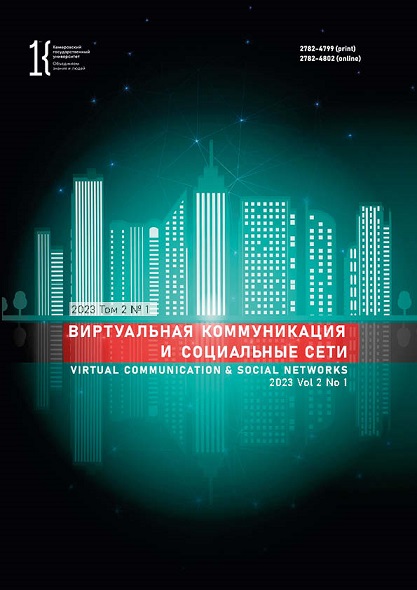Kemerovo, Russian Federation
VAK Russia 5.9.9
This article explores the theoretical foundations of calculating the user’s trust in Internet services. The author conceptualized trust as a rational action and used the metaphor of calculation to examine the main objective factors that affect trust in internet services. These factors were divided into three groups according to the evaluation object: winnings, risks, and trustworthiness. The increasing offer makes the user face the trust dilemma. Trust in Internet services depends on many interrelated factors that encourage users to turn to online services. The factor of winning is especially important: online services save time and are more user-friendly. The risk factor is associated with the personal data that the user has to provide. The research facilitates the processes of digital transformation in general and can help to increase public trust in specific Internet services.
trust, internet service, trust factors, winnings, risks, trustworthiness, building trust
1. Alekseev M. S. Conceptualization of the concept of trust in the studies of the interaction of the government and the population. Actual problems of social and psychological sciences: theory, methodology, practice: Proc. Symposium of the XVII (XLIX) Intern. Sci. Conf., Kemerovo, 21 Apr 2022. Kemerovo: KemSU, 2022, 173-175. (In Russ.) https://elibrary.ru/azhqoo
2. Alekseev M. S. Construction social trust as a direction of social responsibility management in virtual space. Naukosfera, 2021, (1-2): 55-58. (In Russ.) https://elibrary.ru/ntrfig
3. Alekseeva A. A. Speech tactics in online medical advice (based on health.mail.ru). Vestnik Novosibirskogo Gosudarstvennogo Universiteta, Seriya: Istoriya, Filologiya, 2017, 16(9): 112-120. (In Russ.) https://doi.org/10.25205/1818-7919-2017-16-9-112-120
4. Veselov Yu. V. Trust in a digital society. Vestnik of Saint Petersburg University. Sociology, 2020, 13(2): 129-143. (In Russ.) https://doi.org/10.21638/spbu12.2020.202
5. Vidiasova L. A., Krivoshapkina A. S. Trust in city electronic services in St. Petersburg: analysis of age groups. International Journal of Open Information Technologies, 2022, 10(11): 70-74. (In Russ.) https://elibrary.ru/gxvlzk
6. Douglas. M. The Madness of crowds: gender, race and identity. Moscow: RIPOL klassik, 2022, 480. (In Russ.)
7. Zvereva E. A. Features of mediaconsuming "generation Y" and "generation Z". Sotsialno-gumanitarnye znaniya, 2018, (8): 205-216. (In Russ.) https://elibrary.ru/xziprr
8. Lisenkova A. A. New media: from Web 1.0 to Web 4.0 semantic web. The Bulletin of Moscow State University of Culture and Arts (Vestnik MGUKI), 2018, (1): 110-118. (In Russ.) https://elibrary.ru/xpattf
9. Nazarov M. M., Kublitskaya E. A. Privacy in a digital environment: public attitudes. Herald of the Russian Academy of Sciences, 2021, 91(3): 257-264. (In Russ.) https://doi.org/10.31857/S0869587321020055
10. Trubitsyna L. V. Subjective-psychological factors of media-trust (trust to the Internet). The Herald of South-Ural state Humanities-Pedagogical University, 2020, (6): 266-284. (In Russ.) https://doi.org/10.25588/CSPU.2020.159.6.016
11. Sztompka. P. Trust: a sociological theory. Moscow: Logos, 2016, 440. (In Russ.)
12. Hardin R. Trust and trustworthiness. NY: Russell Sage Foundation, 2002, 256.















